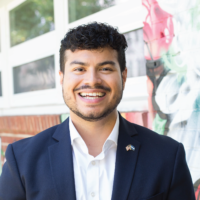January 24, 2023
Outdated Eligibility Rules Leave 13,000 Kids Without Health Coverage Options in Virginia
No parent should have to consider delaying medical care for a sick or injured child due to the fear of overwhelming medical debt. Unfortunately, that is too often the case. Roughly 88,000 (4.4%) children in Virginia do not have health coverage, according to 2021 Census data. This leads to more absences from school due to illness, missed opportunities for seeking medical care before health conditions worsen, and missing crucial well-child visits over concerns about paying for other essentials like food and rent.
While there has been some recent improvement in children’s insurance rates in Virginia, the state still ranks 25th in the nation based on the number of children who lack health insurance. A closer look at the data makes it clear that children barred from accessing health coverage through Medicaid/Children’s Health Insurance Program (CHIP) due to immigration status are among those with the highest risk of not having health insurance. However, it doesn’t have to stay that way.
State lawmakers can change backwards and outdated eligibility rules and make affordable and comprehensive health coverage available to all income-eligible children who call Virginia home. Passing House Bill (HB) 2210 and Senate Bill (SB) 1327 and fully funding the Cover All Kids program would open a path to health coverage for roughly 13,000 children in Virginia, according to The Migration Policy Institute (9,000 uninsured and 4,000 underinsured).

Unequal Access to Health Coverage
Virginia’s uninsured rate for children dropped from 4.9% in 2019 to 4.4% in 2021. This is a step in the right direction, yet a closer look reveals unequal access to coverage based on immigration status.
A child’s immigration status is a strong indicator of whether they have health coverage. Children who are citizens have an uninsured rate of 3.7%. In contrast, children who are non-citizens have an uninsured rate of 29%, and almost half (48%) of all undocumented children are uninsured.
Non-citizens vary in current immigration status, including lawful permanent residents, refugees and asylees, those with pending immigration cases, those without any status, and many other possible immigration statuses. Non-citizen children in Virginia are ethnically diverse with most identifying as Latino (45.7%), followed by non-Hispanic Asian and Pacific Islander (28.9%), non-Hispanic white (11.8%), non-Hispanic Black (9.5%), and people who identify with two or more categories or whose identity was not captured by Census categories (4.1%).
These statistics do not indicate a lack of interest in signing up for health coverage but rather a lack of access to affordable and comprehensive options for families with undocumented children. Federal law prohibits these families from accessing coverage through Medicaid, CHIP, and the Affordable Care Act (ACA) marketplace. There are only a few exceptions, such as Emergency Medicaid for severe and life-threatening medical emergencies and prenatal coverage for pregnant people.
Employer-based coverage options for parents or guardians, which is how most children in Virginia obtain health coverage, are often limited for families with undocumented children. Furthermore, employment in low-wage or seasonal work often does not come with an offer of health coverage or is unaffordable when it is offered.
The practical impacts are clear: families avoid necessary health care over concerns about expensive medical bills. Delaying care can result in avoidable and costly visits to the emergency department for the family and child, creating financial hardship. Choosing between a child’s health care needs and paying for household essentials like rent and food is a decision that no family should have to make.
Covering Children Regardless of Immigration Status
Ten states (CA, CT, IL, MA, NY, NJ, OR, ME, VT, and WA) and the District of Columbia have recognized and acted to remove status-related barriers to health coverage. These states currently use state funds to cover children in comprehensive health coverage who are eligible for Medicaid/CHIP based on income, but ineligible due to immigration status. These states have a lower children’s uninsured rate than Virginia (4.4%), ranging from 1.3% to 4.3% and have modeled how this coverage can be effective. Two states (CO and RI) are in the process of implementing similar programs.
Though funded primarily with state-only dollars, these state coverage programs function like Medicaid/CHIP for the family, offering the same scope of child-specific benefits. Virginia should follow suit by expanding comprehensive state-funded health coverage to all children regardless of status — providing a health coverage option to 1 in 10 (10.2%) currently uninsured children in Virginia — or risk getting left further behind.
Past Time to Cover All Kids
Parents shouldn’t have to make impossible decisions on whether to seek care for their child, and state lawmakers shouldn’t continue investing in only some children’s futures. HB 2210 (Del. Tran) and SB 1327 (Sens. McClellan and Ebbin) offer an opportunity to connect more children to health coverage. By passing and funding HB 2210 and SB 1327, roughly 13,000 children in Virginia would have new access to affordable and comprehensive coverage. Legislators have the tools and the financial resources to establish Virginia as a national leader in children’s health coverage and prove that Virginia invests in every child’s future.
Categories:
Health Care, Immigration
